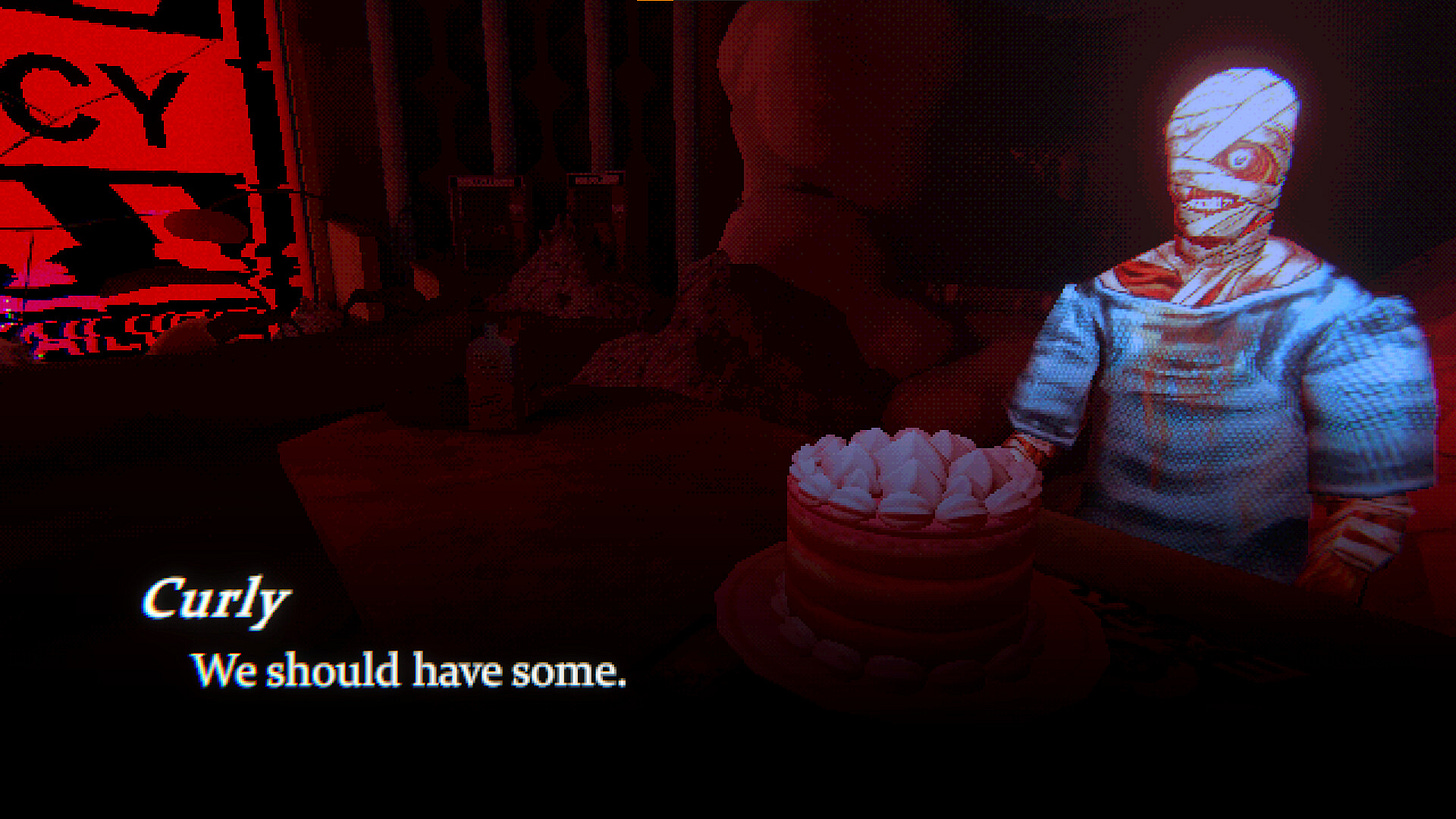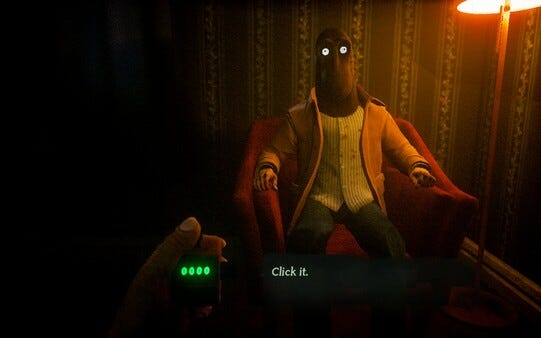Weird
Hunting wishlists is making indie games boring - time to get weird…
About a decade ago, the games critic Zolani Stewart told me the following:
"It feels like indie dev culture, like the big indie dev culture is so market focused? With the #indiepocalypse articles and the Steam sales chart math, it feels more like a tech culture than an arts culture, more interested in optimizing a killer app than making some kind of artistic ground."
At the time, I found this a little frustrating - much of indie development has historically been about treading the line between creativity and commerce, refusing to get sucked into cynicism while still making some kind of living, so Zolani's comment felt reductive.
The problem with wildly creative work is that it's hard to categorise and therefore hard to market. The director Ari Aster's horror movies Hereditary and Midsommar were flagship titles for distributor and production company A24, but his picaresque follow-up Beau is Afraid - a kind of curdled surreal episodic tragi-comedy - proved almost impossible to package for a mainstream audience.
There is also an underlying truth which can be difficult for creators to reckon with - many audiences simply do not want to be challenged or taken out of their comfort zone.
So is it possible for devs to break out of genre flowchart hell? "I need to make a roguelike citybuilder with RPG elements in order to please The Algorithm" isn't often the most inspiring premise. Allow me to suggest some potentially viable ways of making something…different.
Be Very Cheap
One way to get your wackiest ideas out there is simply to deploy a very small budget. Many devs are unfortunately budgeting from the wrong end - "here's what myself and my team would like to earn for x amount of time" is not the right way to do this. Instead, start from the perspective of time and money - if this weird little game can connect with an audience, who might that audience be and how much might they be willing to pay for it?
Yes, this is a very challenging calculation but as the owner of the idea, you are best placed to make it.
Be Scary and / or Funny
There are several reasons why many notable "weird" games incorporate horror elements:
Horror anchors at least some element of the audience
Horror implies and facilitates an immediate Catch
Horror lends itself naturally to mystery
Comedy can behave in a similar way - if you can come up with a funny enough conceit, then your game has much more leeway to be unusual.
Be Very Ambitious
If your game plays great and is deep enough, there is a lot you can get away with in terms of theme, presentation and setting. A sense of style, no matter how perverted, is always going to be more valuable than blandness.
Just Keep Being Weird
While I think many devs aim for originality as a form of creative posturing, if you can genuinely create an original experience unlike any other which is still profoundly compelling and doesn't read as just "random" or "self-indulgent" (many gamers are bizarrely sensitive about anyone 'talking down to them') then that will trump any "Top Steam Genres for [Insert Year Here]". For many indie devs, leaning into extremely personal hand-crafted bespoke weirdness is going to be their best bet as game development becomes increasingly accessible and big marketing questions increasingly become solved problems.
Much noise is made around indies' ability to "serve niche audiences" - if you have an idea in mind which will truly accomplish this then follow that thread and see where it takes you.
For those of us old enough to remember the “multimedia” era, during which the CD-ROM was viewed as the final artistic frontier, games have often had a strong association with experimental art. There is always going to be a tension between market forces, self-expression and formal innovation - let’s continue to embrace that as we move into yet another new generation of gaming.








What I'm trying to speak to here is conventional wisdom around genre and Steam tag selection rather than making a definitive statement about the overall performance of "weird" games. I think "weird" games that exhibit a strong ability to attract and retain players have as good a chance as anything.
How certain are you that “weird“ games underperform in the current indie landscape? At least on Steam, my impression is that strange games (Nubby's Number Factory, Cruelty Squad, everything from Strange Scaffold) are far more attention-grabbing than the umpteenth survivorslike, puzzle-platformer, or roguelike deckbuilder.
Maybe the dynamics differ on mobile, where user-acquisition is less about gaining momentum on Steam, and more about maximizing conversion rates on paid ads? I could see that creating a tendency towards generic, agreeable games with a checklist of expected features, settings and mechanics.